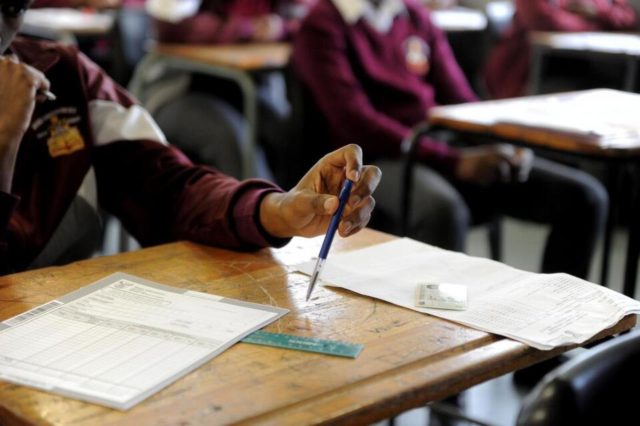Matric pupils would be assessed on the full curriculum, said Deputy Education Minister, Makgabo Mhaule.
Durban – The Department of Basic Education is on schedule for public and private schools to reopen for Grade 7 and 12 pupils on June 1, Education Minister Angie Motshekga announced on Tuesday night.
Matric pupils would be assessed on the full curriculum, said Deputy Education Minister, Makgabo Mhaule.
“The matric exam papers are ready. The syllabus of other grades will be trimmed. However, the full matric syllabus will not be cut, ” she said.
She added that the National Coronavirus Command Council and the Cabinet had approved the reopening of schools on June 1.
“We will start with Grades 7 and 12 and small schools. The other grades will follow in due course,” Motshekga said.
“As much as it was important to save the academic year, the key principles should be informed by the safety of pupils, teachers and workers in our schools.
“We must ensure that the reopening of schools does not contribute in any way to the spread of the virus.”
She said they had “relied heavily” on the advice of medical experts under the leadership of the Department of Health.
Motshekga said the Council of Education Ministers had met on Monday to consider the state of readiness for the reopening of schools and agreed that all provinces should move at the same pace.
“The reopening of schools will happen as outlined in the protocols that have been developed. Reports indicate that preparations have been taking place and good progress has been made in all provinces.
“All indications are that the preconditions for the reopening of schools will be met, obviously with the premium being on saving lives,” she said.
She said the Covid-19 essentials, such as sanitisers, masks, water and sanitation, were being delivered to all provinces and stored in safe warehouses.
Most schools were already in the process of being cleaned, she said.
Motshekga added that no schools would go without water.
“The virus has forced us to re-engineer the basic education system. A fundamental review has become necessary if we are to minimise the impact on the sector in the long term,” she said.
“However, in the short term and in keeping with the goal of managing the academic year, we have come up with several measures to help the sector recover some of the lost time. The amount of time available in a school day will determine the duration of the period by subject.
“We will be using innovative methods to meet health, safety, social or physical distancing requirements. The trimmed curriculum will be sent to schools for planning purposes, it is being worked on on a continuous basis,” she added.
Motshekga said the roles of school principals and school management teams would be affirmed in assuming the overall responsibility of the day-to-day running of schools.
“They are expected to put measures in place for equitable allocation of periods or time for teachers to cover the scope of the curriculum in saving the academic year,” she said.
All curriculum enrichment programmes would be put on hold until further notice.
Motshekga said school sports would not be permitted as they would increase the chances of infection.
She said teacher unions, school governing body associations and principals’ associations had been briefed on Tuesday regarding the plans.
“We urge parents to work closely with schools to ensure that pupils with pre-existing illnesses are assisted,” she said.
The schools nutrition programme would also reopen on June 1, Motshekga said.
She also used the opportunity to condemn the vandalism of schools.
“We have now 1577 schools broken into around the country, 463 of the schools are in KwaZulu-Natal and 336 are in Gauteng. This is truly a disturbing trend that will set us back in our efforts of trying to get back the academic programme.
“We appeal to members of the public to help the police bring the perpetrators to justice,” Motshekga said.
The Mercury








